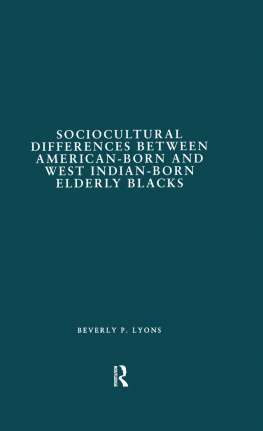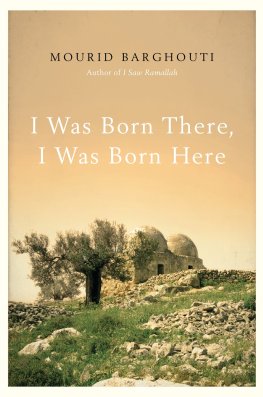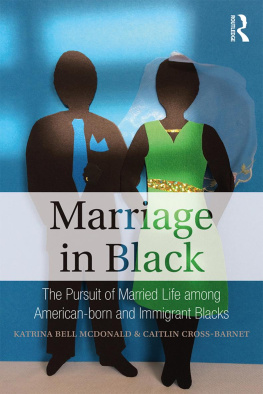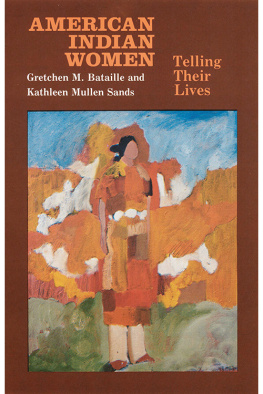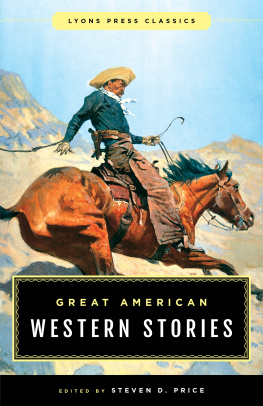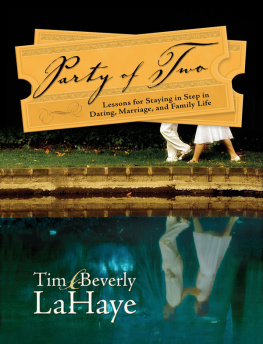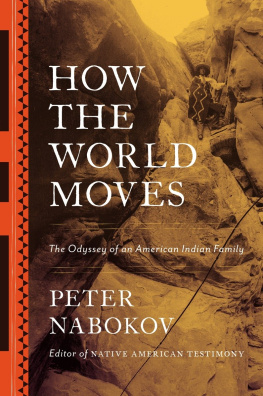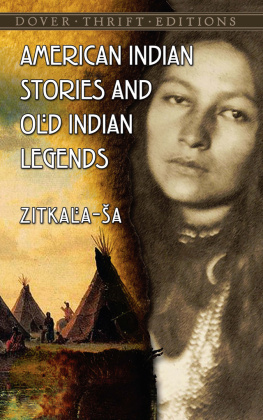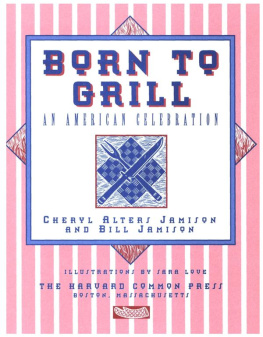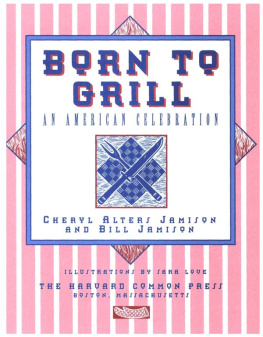Beverly P. Lyons - Sociocultural Differences between American-born and West Indian-born Elderly Blacks
Here you can read online Beverly P. Lyons - Sociocultural Differences between American-born and West Indian-born Elderly Blacks full text of the book (entire story) in english for free. Download pdf and epub, get meaning, cover and reviews about this ebook. year: 1997, publisher: Routledge, genre: Politics. Description of the work, (preface) as well as reviews are available. Best literature library LitArk.com created for fans of good reading and offers a wide selection of genres:
Romance novel
Science fiction
Adventure
Detective
Science
History
Home and family
Prose
Art
Politics
Computer
Non-fiction
Religion
Business
Children
Humor
Choose a favorite category and find really read worthwhile books. Enjoy immersion in the world of imagination, feel the emotions of the characters or learn something new for yourself, make an fascinating discovery.
- Book:Sociocultural Differences between American-born and West Indian-born Elderly Blacks
- Author:
- Publisher:Routledge
- Genre:
- Year:1997
- Rating:3 / 5
- Favourites:Add to favourites
- Your mark:
- 60
- 1
- 2
- 3
- 4
- 5
Sociocultural Differences between American-born and West Indian-born Elderly Blacks: summary, description and annotation
We offer to read an annotation, description, summary or preface (depends on what the author of the book "Sociocultural Differences between American-born and West Indian-born Elderly Blacks" wrote himself). If you haven't found the necessary information about the book — write in the comments, we will try to find it.
Beverly P. Lyons: author's other books
Who wrote Sociocultural Differences between American-born and West Indian-born Elderly Blacks? Find out the surname, the name of the author of the book and a list of all author's works by series.
Sociocultural Differences between American-born and West Indian-born Elderly Blacks — read online for free the complete book (whole text) full work
Below is the text of the book, divided by pages. System saving the place of the last page read, allows you to conveniently read the book "Sociocultural Differences between American-born and West Indian-born Elderly Blacks" online for free, without having to search again every time where you left off. Put a bookmark, and you can go to the page where you finished reading at any time.
Font size:
Interval:
Bookmark:
THE ELDERLY IN AMERICA
STUART BRUCHEY
UNIVERSITY OF MAINE


2 Park Square, Milton Park, Abingdon, Oxon OX14 4RN
52 Vanderbilt Avenue, New York, NY 10017
Product or corporate names may be trademarks or registered trademarks, and are used only for identification and explanation without intent to infringe.
Lyons, Beverly P., 1950
Sociocultural differences between American-born and West Indian-born elderly Blacks: a comparative study of health and social service use / Beverly P. Lyons.
p. cm. (Garland studies on the elderly in America)
Includes bibliographical references and index.
ISBN 0-8153-3042-1 (alk. paper)
1. Social work with Afro-AmericansNew York (State) New York. 2. Social work with the agedNew York (State) New York. 3. Minority agedNew York (State)New York Social conditions. 4. West Indian AmericansNew York (State) New YorkSocial conditions. 5. Medical careUtilizationNew York (State)New York. 6. Social surveysNew York (State) New York. I. Title. II. Series.
HV3185.N47L95 1997
362.819607307471dc21
97-22284
Professor and Brookdale Distinguished Scholar
Graduate School of Social Services
Fordham University
Font size:
Interval:
Bookmark:
Similar books «Sociocultural Differences between American-born and West Indian-born Elderly Blacks»
Look at similar books to Sociocultural Differences between American-born and West Indian-born Elderly Blacks. We have selected literature similar in name and meaning in the hope of providing readers with more options to find new, interesting, not yet read works.
Discussion, reviews of the book Sociocultural Differences between American-born and West Indian-born Elderly Blacks and just readers' own opinions. Leave your comments, write what you think about the work, its meaning or the main characters. Specify what exactly you liked and what you didn't like, and why you think so.

